Events
| Name | organizer | Where |
|---|---|---|
| MBCC “Doing Business with Mongolia seminar and Christmas Receptiom” Dec 10. 2025 London UK | MBCCI | London UK Goodman LLC |
NEWS
Ion Energy Secures $13.5M Deal www.insidemongolia.mn
Toronto-listed ION Energy (ION.V) signs a $13.5 million agreement with strategic investor SureFQ to jointly develop the Urgakh Naran lithium project in Mongolia.
Deal Details
SureFQ pays $5.5 million to ION Energy over 4.5 years and invests an additional $8 million over the next 4 years to advance the project. ION Energy retains a 20% stake in the project until commercial lithium production begins at Urgakh Naran.
Following the announcement, shares of ION Energy, which implements Mongolia's first lithium project, surge by over 22% on the Toronto Stock Exchange, reaching CAD 0.055.
About SureFQ
SureFQ, a firm specializing in sustainable energy solutions and lithium resource development, leverages its industry expertise and advanced extraction technologies to accelerate the project’s progress. As a strategic investor, SureFQ focuses on developing high-potential assets that support the global energy transition.
Financial Updates and Debt Settlement
In addition to the joint venture agreement, ION Energy also announces a debt settlement of $120,000. The company is to issue 3,000,000 common shares at $0.04 per share to settle the debt, providing additional liquidity for the development of its lithium projects.
Moreover, ION Energy has terminated its previously announced business combination with United Rare Earths. This decision reflects the company’s strategic focus on lithium exploration and development, ensuring resources are concentrated on high-potential projects like Urgakh Naran.
Looking Ahead, as Mongolia’s first lithium project, Urgakh Naran holds significant potential not only for ION Energy but also for the broader lithium market. The development of Urgakh Naran is particularly timely, given the increasing global demand for lithium, which is crucial for the production of batteries for electric vehicles (EVs).
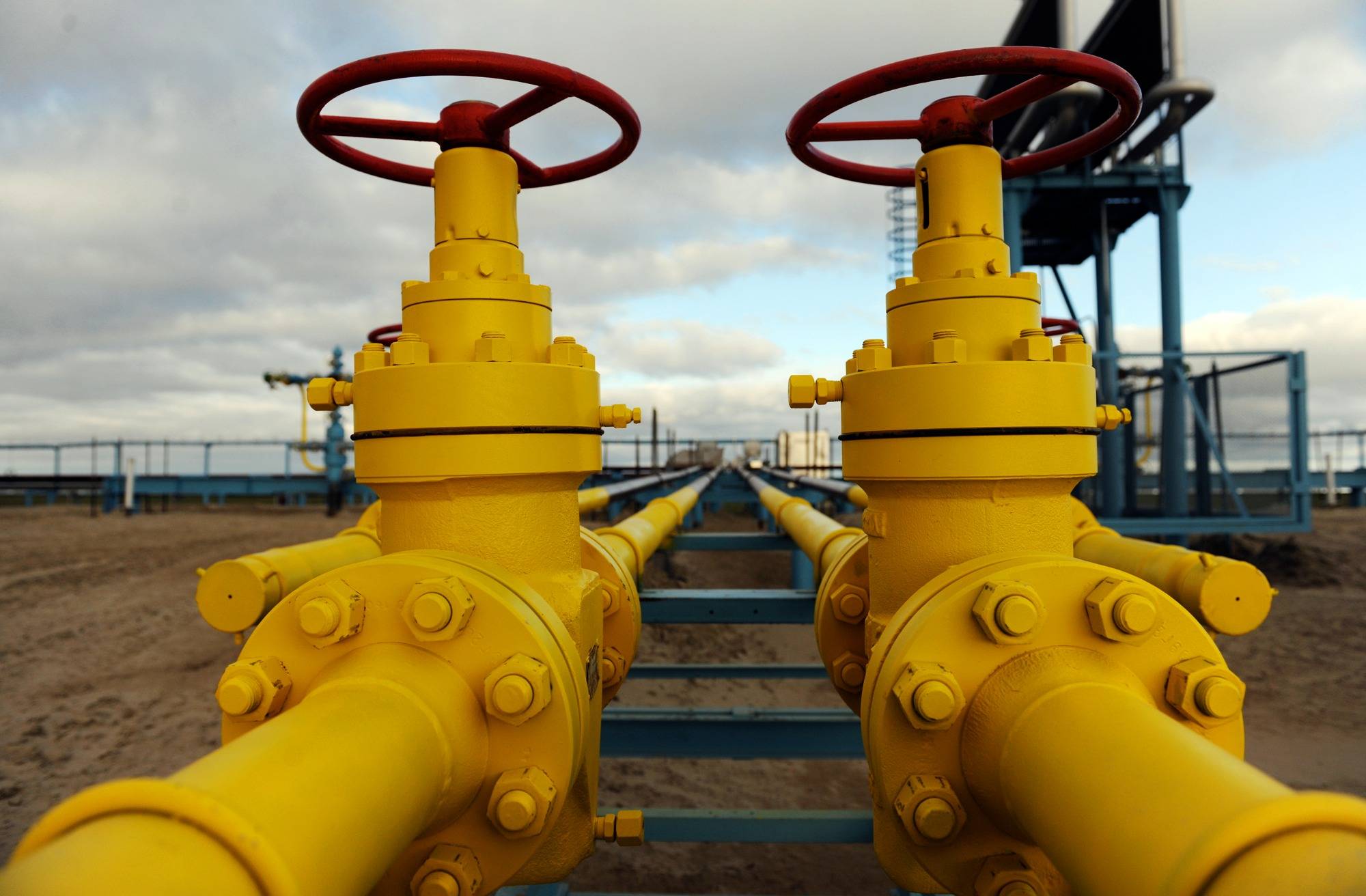
Progress of Natural Gas Pipeline Project Presented to Cabinet www.montsame.mn
During the regular session of the Cabinet of Mongolia on April 2, 2025, Deputy Prime Minister Amarsaikhan Sainbuyan presented the progress of the project to construct a natural gas pipeline from the Russian Federation to the People's Republic of China through the territory of Mongolia.
From the Mongolian side, the “Erdenes Gaz” project unit under “Erdenes Mongol” LLC and, from the Russian side, “Gazoprovod Soyuz Vostok” LLC—funded by “Gazprom”—are working together to implement the project. The project’s feasibility study was approved in January 2022, with engineering surveys completed the same year. Verification of the detailed design documentation is scheduled to be finished by 2024. The necessary land will be designated as special state-use territory, and an environmental impact assessment is planned for completion by the third quarter of 2025.
The gas pipeline will pass through six aimags and 22 soums of Mongolia, stretching 958.6 km underground from the northern border to the southern border. According to the feasibility study, the project is technically feasible, economically viable, and will not have any negative impact on the environment. The project will also increase foreign direct investment and expand the economy. 12,000 jobs will be created during the construction and more than 1,000 jobs during operation.
Natural gas is an inexpensive energy source, and building heat and power plants that use natural gas will improve the flexibility and stability of the energy system. Furthermore, the design plan calls for gas supply connections to Darkhan, Ulaanbaatar, Choir, and Sainshand, which would allow Mongolia to utilize natural gas domestically and fully address its air pollution issues.
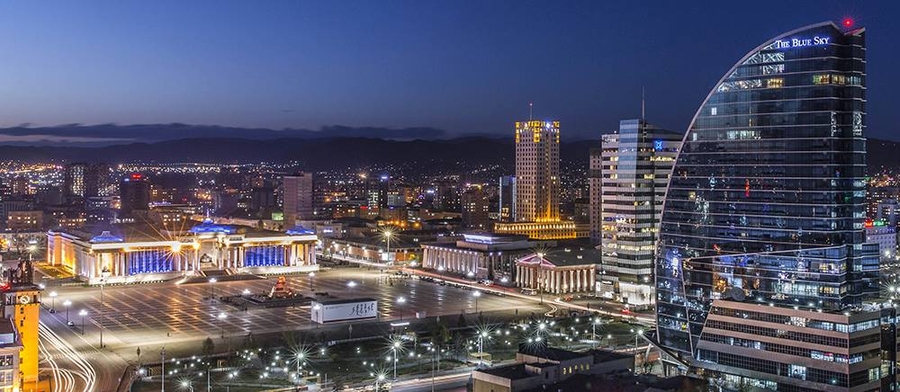
Ulaanbaatar to Implement 24 Mega Projects Under International FIDIC Contract Standards www.montsame.mn
Officials from the government and administrative organizations of the Capital City participated in a training session dedicated to the contract frameworks of the International Federation of Consulting Engineers (FIDIC) on April 2, 2025.
The training session offered in-depth insights into how FIDIC Contracts align with the legal framework of Mongolia, while also covering the key features and categories of these internationally recognized agreements. In accordance with Ulaanbaatar City's strategic objectives to reduce air and environmental pollution, alleviate traffic congestion, and enhance the quality of life for residents, 24 Mega Projects in Ulaanbaatar City are set to be implemented in accordance with FIDIC Contract standards.
Established in 1913 by engineers from the French Republic and the Kingdom of Belgium, FIDIC today comprises 102 member countries. The FIDIC introduced its first standard contract in 1957, and these model agreements remain widely used across the globe. FIDIC Contracts are structured to equitably allocate the rights, responsibilities, and liabilities of all key stakeholders in a project, ensuring risk mitigation and the avoidance of delays and financial losses through clearly defined, internationally accepted procedures.
First Deputy Governor of the Capital City in Charge of Economic Development and Infrastructure Davaadalai Tumendalai, noted: “By employing internationally recognized contractual frameworks that account for the interests of all stakeholders and provide built-in risk mitigation, we can ensure that infrastructure projects are delivered on time and without financial disruption. FIDIC represents the universal language of engineering.”
The 2023 Top Certified Trainer of the FIDIC and Consulting Engineer, Markus Thiel, mentioned: “When applying or drafting a FIDIC Contract, it is essential that all parties fully understand the methodology. This knowledge should not be limited to engineers but must also extend to employers and contractors. Without such understanding, there is a significant risk of misinterpretation and contractual disputes.”
Founder and Managing Partner at "Batbayar and Partners LLP" Batbayar Ganbayar said: “During the course of project implementation, disagreements or conflicts may arise. Under the standard conditions of FIDIC Contracts, it is possible to rapidly engage a neutral consulting engineer from the global network of FIDIC-affiliated experts to resolve such issues. This represents a practical advantage over local contracts bound strictly by domestic legal systems.”
FIDIC Contract models vary based on the nature and requirements of each project. For road and general construction initiatives, the Red Book and Yellow Book are commonly utilized. The Silver Book is employed for design-build projects under turnkey conditions, while the White Book serves as the standard model for consultancy service agreements.

Interbank Transactions Now Use IBAN Numbers www.montsame.mn
Mongolia has transitioned to the international standardized bank account numbering system. Going forward, only International Bank Account Number (IBAN) account numbers will be used when making inter-bank transactions.
Under the order of the President of the Bank of Mongolia, starting this month, the old account numbering system for citizens and businesses has been discontinued, and accounts are now being converted to the international standardized system. An IBAN account is a 20-digit account number recognized by international standards, consisting of a country code, check digits, and the bank and account number. Adopting IBAN numbers will make international transactions faster, more reliable, and less risky, with no duplication issues and no occurrences of mismatched names and accounts, and other advantages.
Furthermore, it should be noted that using an IBAN account does not change the original account number.
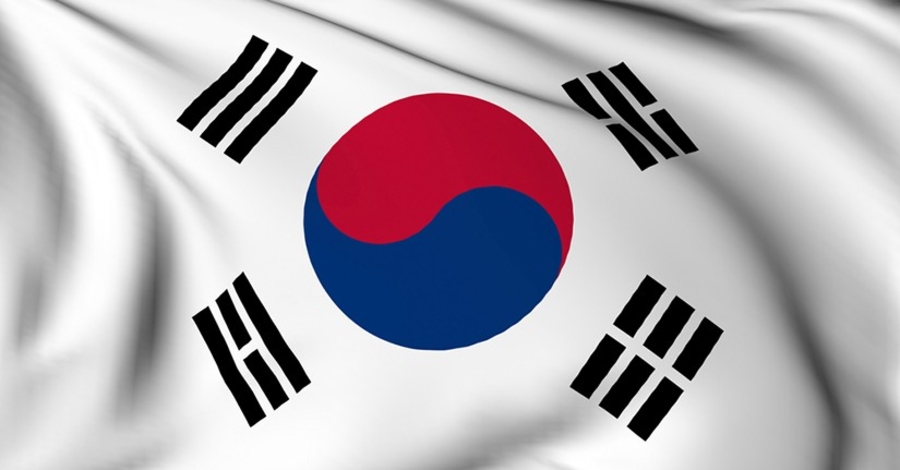
meerecompany Signs MOU with the Mongolian Center for Health Development www.surgicalroboticstechnology.com
meerecompany has announced that a delegation of 15 representatives from Mongolia’s Ministry of Health, the Center for Health Development, and other key medical institutions has visited the company’s Robotic Surgery Innovation Center to strengthen medical cooperation. The center houses the training facilities for the Revo-i surgical robot and visit was organized to learn about Korea’s advanced medical system and explore potential collaborations in robotic surgery.
The Mongolian delegation included Byambasuren Tuya, Head of the Human Resources Development Division at the Ministry of Health; Bayarmagnai Narantuya, Director of the Center for Health Development; as well as the heads of the National Center for Pathology, the National Center for Zoonotic Diseases, and the National Center for Mental Health. Officials from Gyeonggi Province and the Gyeonggi International Medical Association also accompanied the group.
Representing meerecompany was CEO Joon Koo Kim and Executive Vice President Ho Kun Lee, Head of the Surgical Robot Division. A key highlight of the visit was the signing of a Memorandum of Understanding (MOU) between meerecompany and the Mongolian Center for Health Development to collaborate on improving Mongolia’s medical system. As a core agency under the Ministry of Health, the Center is responsible for training healthcare professionals and shaping healthcare policy. Under the agreement, the two parties plan to:
During a demonstration held at the Robotic Surgery Innovation Center, Byambasuren Tuya operated the Revo-i robot and experienced its precision and intuitive control. Since its introduction at the National Cancer Center of Mongolia last year, Revo-i has drawn significant interest from both medical professionals and patients. This agreement is expected to accelerate the adoption of Revo-i and contribute to the enhancement of Mongolia’s surgical infrastructure.
The delegation also visited Bundang Jesaeng Hospital, where Revo-i has been implemented, to observe real-world clinical applications and discuss potential collaboration on robotic surgery training programs for Mongolian medical professionals. Moving forward, the two countries aim to expand medical exchanges and establish robotic surgery as a key component of Mongolia’s healthcare system.
Ho Kun Lee, Executive Vice President and Head of meerecompany’s Surgical Robot Division, stated, “This visit marks an important milestone, as the Mongolian government directly recognized the capabilities of Korean robotic surgery technology and formalized collaboration. We will continue working together to contribute to the advancement of Mongolia’s healthcare system.”
Source: meerecompany
...

Gold and copper prices surge www.ubpost.mn
As of April 1, Mongol Bank’s gold purchase price has reached 349,069 MNT per gram, reflecting a steady increase over the past year. This trend aligns with the ongoing rise in gold and copper prices on the global market, influenced by recent U.S. trade policies.
The country’s copper concentrate sales have also seen an upward trend, with an average price of 1,721 USD per ton in 2023, increasing to 1,957 USD per ton in 2024. Experts attribute this price surge to the economic policies of U.S. President Donald Trump, particularly his decision to raise import taxes as part of efforts to reduce the US trade deficit.
Investors, responding to global economic uncertainty, have shifted their focus toward gold as a safe-haven asset. The financial sector often echoes the saying, “People who are afraid buy gold,” underscoring the metal’s reputation as a stable investment during periods of economic volatility and rising inflation.
“Gold prices have increased by 17 percent since the beginning of the year. Gold is becoming a safe investment vehicle due to increasing political and economic instability and inflation risks,” said a spokesperson from Apex Capital LLC.
Mongolia has attempted to capitalize on the favorable market conditions, though gold mining outputs fell slightly short of projections. The country planned to mine 18 tons of gold last year but managed 16.5 tons. Despite this, gold revenues significantly contributed to the national budget, generating 311 billion MNT in 2023 and 375 billion MNT in 2024.
Meanwhile, copper has proven to be an even greater economic driver, contributing 2.2 trillion MNT to the state budget in 2023 and increasing to 2.3 trillion MNT in 2024. With global market prices continuing to rise, Mongolia stands to benefit further from its resource exports, reinforcing its role as a key player in the international commodities market.
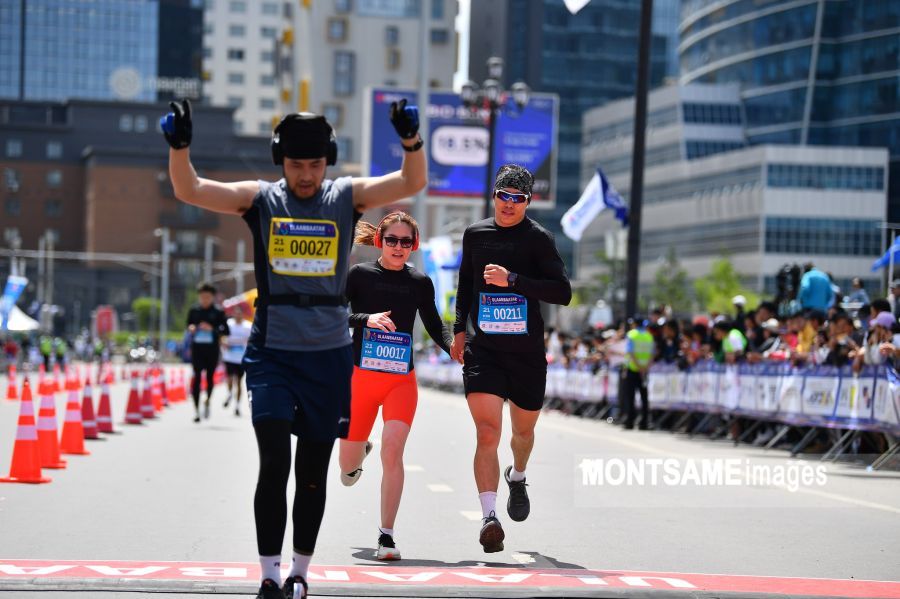
Registration for the Ulaanbaatar Marathon 2025 is Now Open www.montsame.mn
The annual "Ulaanbaatar Marathon" International Competition will take place on May 24, 2025.
Registration for the marathon will be open from April 1, 2025, to May 20, 2025. Individuals, organizations, and international participants can register online at https://ulaanbaatar.marathon.mn/ or through the Hipay application, where they can also pay the registration fee. The race categories will remain the same as in previous years, ranging from 500 meters to 42 kilometers.
The registration fees are as follows:
1.5 km – MNT 5,000 per participant (including family category participants)
5 km – MNT 10,000
10 km – MNT 50,000
21 km – MNT 70,000
42 km – MNT 90,000
Most participants usually choose to compete in the 5 km race. Those registered for this category can pick up their bib numbers from the Sports and Physical Culture Department of Ulaanbaatar City or the sports committees of the nine districts. Bib numbers will be available for collection from May 1 to May 20, 2025.
The Sports and Physical Culture Department of Ulaanbaatar City will distribute bib numbers, timing chips, and event T-shirts to runners participating in the 42 km, 21 km, and 10 km races. This department will also handle verification and bib distribution for the 1.5 km race. Registration for the 500 m and 800 m races will be managed by Special Olympics Mongolia, and additional details will be announced soon.
Participants can download and print their official certificates at https://ulaanbaatar.marathon.mn/. The Ulaanbaatar Marathon is growing in popularity. In 2024, it attracted around 30,000 Mongolian and international runners.
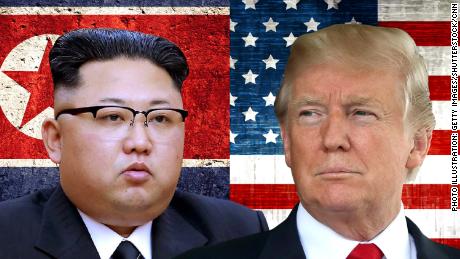
Why Donald Trump should meet Kim Jong- un again – in Mongolia www.lowyinstitute.org
With Donald Trump back in the White House and North Korea’s nuclear program under Kim Jong-un continuing unchecked, another summit between the two leaders seems to be a matter of when, not if. This time, they should meet in Mongolia.
The first two Trump-Kim summits produced spectacle but little substance. Singapore offered glamour in 2018 but yielded only vague commitments. Hanoi in 2019 collapsed entirely. Their third meeting on the DMZ was made for the cameras. The diplomatic window closed afterwards as Covid-19 and US domestic politics intervened.
Now, that window has reopened. North Korea has advanced its capabilities significantly, testing intercontinental ballistic missiles and tactical nuclear warheads while deepening ties with Russia. The nuclear challenge hasn’t disappeared – it has intensified.
When Trump decides to reengage with Kim – and most likely he will – the choice of venue will shape both process and outcomes.
For Washington and Pyongyang to re-engage effectively, they’ll need a venue that addresses the practical and symbolic barriers that hampered previous efforts. Mongolia offers unique advantages that neither side can afford to ignore.
First, accessibility. When Kim travelled to Singapore, he was forced to borrow a Chinese aircraft that may have led to a national embarrassment. Mongolia allows him to arrive by train, just as his grandfather did in 1988, projecting independence rather than reliance on Beijing. For a regime obsessed with symbolism and self-sufficiency, this matters tremendously.
Second, Mongolia’s diplomatic positioning. Unlike other potential hosts, Mongolia maintains equally constructive relationships with both sides without competing strategic agendas. A democracy with strong Western ties, Mongolia nonetheless treats North Korea with consistent respect rather than isolation. This balanced approach – democratic values paired with pragmatic engagement – serves both American and North Korean interests.
The limited progress of the Biden administration on North Korea issues has demonstrated that “strategic patience 2.0” only buys time for the regime to advance its nuclear program. Trump’s unconventional approach, for all its flaws, at least created direct channels between the leaders. Those channels need to be reopened, but with clearer objectives and realistic expectations.
A Mongolian summit would signal both continuity and reset – acknowledging previous diplomatic efforts while creating space for more substantive negotiations. The setting itself would reinforce the message that this engagement is different from the attempts of the past.
South Korea, too, would welcome the summit in Mongolia. Seoul’s relations with Washington have become more complicated, with growing concerns about US security commitments. Former presidential adviser Moon Chung-in recently noted that “there is no guarantee the US will protect [South Korea] in the event of inter-Korean war”. It means the better relations Washington and Pyongyang have, the more secure Seoul would feel.
Some critics will argue that North Korea has proven untrustworthy in previous talks. That’s precisely why the diplomatic approach must evolve. Trump’s return to office creates an opening, but previous mistakes need not be repeated. A focused dialogue in Mongolia – modest in setting but significant in substance – could establish parameters around North Korea’s nuclear program rather than pursuing the elusive goal of complete denuclearisation.
When Trump decides to re-engage with Kim – and most likely he will – the choice of venue will shape both process and outcomes. Mongolia offers what other venue options could not: a setting where both leaders can meet as equals, unburdened by excessive expectations or third-party interests. Mongolia might be the missing piece in a diplomatic puzzle that has confounded US presidents for decades.

Bank of Mongolia Purchases 281.8 Kilograms of Precious Metals in March www.montsame.mn
The Bank of Mongolia purchased 281.8 kilograms of precious metals in March 2025, totaling 2.2 tons of precious metals since the beginning of this year.
Compared to the same period in 2024, the amount of precious metal purchased by the Bank of Mongolia decreased by 35.1 percent. Since the beginning of 2025, the Darkhan-Uul branch of the Bank of Mongolia has purchased 55.4 kilograms of precious metals, while the Bayankhongor branch has bought 254.1 kilograms.
The price of precious metals is determined by the global market. Last month, the average price per gram of gold was MNT 333,309.34.
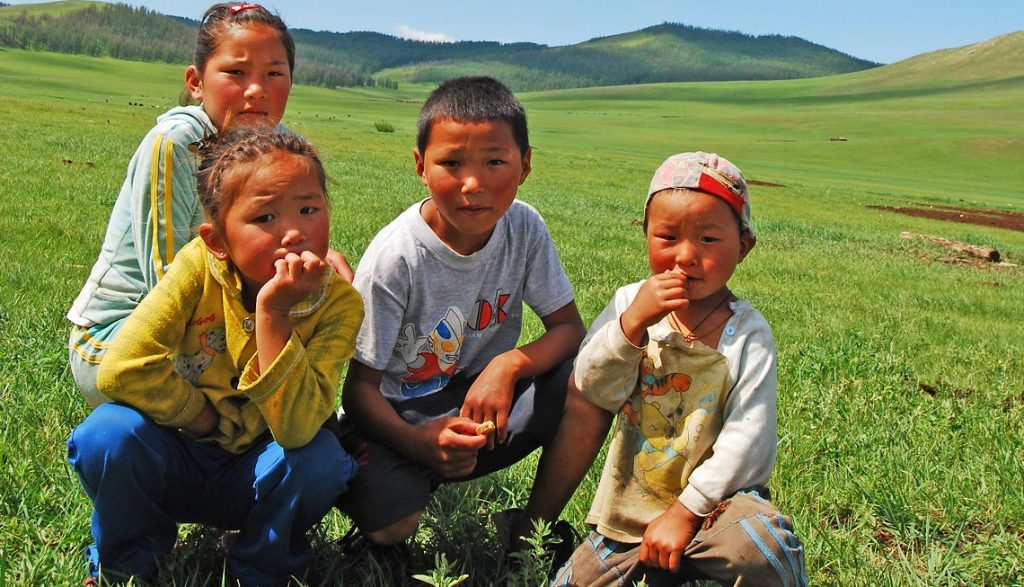
P. Naranbayar: 88,000 more children will need schools and kindergartens by 2030 www.gogo.mn
“If we invest in education, our economy will develop. The education package law has been approved after many discussions, and now we will bring it to life. Equal access to education is a crucial issue, and today, the government has made a very important decision.
This year will be the “Year of supporting education”. We will reform the curriculum and increase investment in the sector.
By 2030, 88,000 more children will be added across the country, and they will need schools and kindergartens. We have calculated population density and used artificial intelligence to determine where and how many schools and kindergartens are needed.
Education is directly linked to human resources, and Mongolia is facing a serious shortage. The government has announced major mega projects, but there are no people to work on them. Supporting education means supporting the future”.
...
- «
- 1
- 2
- 3
- 4
- 5
- 6
- 7
- 8
- 9
- 10
- 11
- 12
- 13
- 14
- 15
- 16
- 17
- 18
- 19
- 20
- 21
- 22
- 23
- 24
- 25
- 26
- 27
- 28
- 29
- 30
- 31
- 32
- 33
- 34
- 35
- 36
- 37
- 38
- 39
- 40
- 41
- 42
- 43
- 44
- 45
- 46
- 47
- 48
- 49
- 50
- 51
- 52
- 53
- 54
- 55
- 56
- 57
- 58
- 59
- 60
- 61
- 62
- 63
- 64
- 65
- 66
- 67
- 68
- 69
- 70
- 71
- 72
- 73
- 74
- 75
- 76
- 77
- 78
- 79
- 80
- 81
- 82
- 83
- 84
- 85
- 86
- 87
- 88
- 89
- 90
- 91
- 92
- 93
- 94
- 95
- 96
- 97
- 98
- 99
- 100
- 101
- 102
- 103
- 104
- 105
- 106
- 107
- 108
- 109
- 110
- 111
- 112
- 113
- 114
- 115
- 116
- 117
- 118
- 119
- 120
- 121
- 122
- 123
- 124
- 125
- 126
- 127
- 128
- 129
- 130
- 131
- 132
- 133
- 134
- 135
- 136
- 137
- 138
- 139
- 140
- 141
- 142
- 143
- 144
- 145
- 146
- 147
- 148
- 149
- 150
- 151
- 152
- 153
- 154
- 155
- 156
- 157
- 158
- 159
- 160
- 161
- 162
- 163
- 164
- 165
- 166
- 167
- 168
- 169
- 170
- 171
- 172
- 173
- 174
- 175
- 176
- 177
- 178
- 179
- 180
- 181
- 182
- 183
- 184
- 185
- 186
- 187
- 188
- 189
- 190
- 191
- 192
- 193
- 194
- 195
- 196
- 197
- 198
- 199
- 200
- 201
- 202
- 203
- 204
- 205
- 206
- 207
- 208
- 209
- 210
- 211
- 212
- 213
- 214
- 215
- 216
- 217
- 218
- 219
- 220
- 221
- 222
- 223
- 224
- 225
- 226
- 227
- 228
- 229
- 230
- 231
- 232
- 233
- 234
- 235
- 236
- 237
- 238
- 239
- 240
- 241
- 242
- 243
- 244
- 245
- 246
- 247
- 248
- 249
- 250
- 251
- 252
- 253
- 254
- 255
- 256
- 257
- 258
- 259
- 260
- 261
- 262
- 263
- 264
- 265
- 266
- 267
- 268
- 269
- 270
- 271
- 272
- 273
- 274
- 275
- 276
- 277
- 278
- 279
- 280
- 281
- 282
- 283
- 284
- 285
- 286
- 287
- 288
- 289
- 290
- 291
- 292
- 293
- 294
- 295
- 296
- 297
- 298
- 299
- 300
- 301
- 302
- 303
- 304
- 305
- 306
- 307
- 308
- 309
- 310
- 311
- 312
- 313
- 314
- 315
- 316
- 317
- 318
- 319
- 320
- 321
- 322
- 323
- 324
- 325
- 326
- 327
- 328
- 329
- 330
- 331
- 332
- 333
- 334
- 335
- 336
- 337
- 338
- 339
- 340
- 341
- 342
- 343
- 344
- 345
- 346
- 347
- 348
- 349
- 350
- 351
- 352
- 353
- 354
- 355
- 356
- 357
- 358
- 359
- 360
- 361
- 362
- 363
- 364
- 365
- 366
- 367
- 368
- 369
- 370
- 371
- 372
- 373
- 374
- 375
- 376
- 377
- 378
- 379
- 380
- 381
- 382
- 383
- 384
- 385
- 386
- 387
- 388
- 389
- 390
- 391
- 392
- 393
- 394
- 395
- 396
- 397
- 398
- 399
- 400
- 401
- 402
- 403
- 404
- 405
- 406
- 407
- 408
- 409
- 410
- 411
- 412
- 413
- 414
- 415
- 416
- 417
- 418
- 419
- 420
- 421
- 422
- 423
- 424
- 425
- 426
- 427
- 428
- 429
- 430
- 431
- 432
- 433
- 434
- 435
- 436
- 437
- 438
- 439
- 440
- 441
- 442
- 443
- 444
- 445
- 446
- 447
- 448
- 449
- 450
- 451
- 452
- 453
- 454
- 455
- 456
- 457
- 458
- 459
- 460
- 461
- 462
- 463
- 464
- 465
- 466
- 467
- 468
- 469
- 470
- 471
- 472
- 473
- 474
- 475
- 476
- 477
- 478
- 479
- 480
- 481
- 482
- 483
- 484
- 485
- 486
- 487
- 488
- 489
- 490
- 491
- 492
- 493
- 494
- 495
- 496
- 497
- 498
- 499
- 500
- 501
- 502
- 503
- 504
- 505
- 506
- 507
- 508
- 509
- 510
- 511
- 512
- 513
- 514
- 515
- 516
- 517
- 518
- 519
- 520
- 521
- 522
- 523
- 524
- 525
- 526
- 527
- 528
- 529
- 530
- 531
- 532
- 533
- 534
- 535
- 536
- 537
- 538
- 539
- 540
- 541
- 542
- 543
- 544
- 545
- 546
- 547
- 548
- 549
- 550
- 551
- 552
- 553
- 554
- 555
- 556
- 557
- 558
- 559
- 560
- 561
- 562
- 563
- 564
- 565
- 566
- 567
- 568
- 569
- 570
- 571
- 572
- 573
- 574
- 575
- 576
- 577
- 578
- 579
- 580
- 581
- 582
- 583
- 584
- 585
- 586
- 587
- 588
- 589
- 590
- 591
- 592
- 593
- 594
- 595
- 596
- 597
- 598
- 599
- 600
- 601
- 602
- 603
- 604
- 605
- 606
- 607
- 608
- 609
- 610
- 611
- 612
- 613
- 614
- 615
- 616
- 617
- 618
- 619
- 620
- 621
- 622
- 623
- 624
- 625
- 626
- 627
- 628
- 629
- 630
- 631
- 632
- 633
- 634
- 635
- 636
- 637
- 638
- 639
- 640
- 641
- 642
- 643
- 644
- 645
- 646
- 647
- 648
- 649
- 650
- 651
- 652
- 653
- 654
- 655
- 656
- 657
- 658
- 659
- 660
- 661
- 662
- 663
- 664
- 665
- 666
- 667
- 668
- 669
- 670
- 671
- 672
- 673
- 674
- 675
- 676
- 677
- 678
- 679
- 680
- 681
- 682
- 683
- 684
- 685
- 686
- 687
- 688
- 689
- 690
- 691
- 692
- 693
- 694
- 695
- 696
- 697
- 698
- 699
- 700
- 701
- 702
- 703
- 704
- 705
- 706
- 707
- 708
- 709
- 710
- 711
- 712
- 713
- 714
- 715
- 716
- 717
- 718
- 719
- 720
- 721
- 722
- 723
- 724
- 725
- 726
- 727
- 728
- 729
- 730
- 731
- 732
- 733
- 734
- 735
- 736
- 737
- 738
- 739
- 740
- 741
- 742
- 743
- 744
- 745
- 746
- 747
- 748
- 749
- 750
- 751
- 752
- 753
- 754
- 755
- 756
- 757
- 758
- 759
- 760
- 761
- 762
- 763
- 764
- 765
- 766
- 767
- 768
- 769
- 770
- 771
- 772
- 773
- 774
- 775
- 776
- 777
- 778
- 779
- 780
- 781
- 782
- 783
- 784
- 785
- 786
- 787
- 788
- 789
- 790
- 791
- 792
- 793
- 794
- 795
- 796
- 797
- 798
- 799
- 800
- 801
- 802
- 803
- 804
- 805
- 806
- 807
- 808
- 809
- 810
- 811
- 812
- 813
- 814
- 815
- 816
- 817
- 818
- 819
- 820
- 821
- 822
- 823
- 824
- 825
- 826
- 827
- 828
- 829
- 830
- 831
- 832
- 833
- 834
- 835
- 836
- 837
- 838
- 839
- 840
- 841
- 842
- 843
- 844
- 845
- 846
- 847
- 848
- 849
- 850
- 851
- 852
- 853
- 854
- 855
- 856
- 857
- 858
- 859
- 860
- 861
- 862
- 863
- 864
- 865
- 866
- 867
- 868
- 869
- 870
- 871
- 872
- 873
- 874
- 875
- 876
- 877
- 878
- 879
- 880
- 881
- 882
- 883
- 884
- 885
- 886
- 887
- 888
- 889
- 890
- 891
- 892
- 893
- 894
- 895
- 896
- 897
- 898
- 899
- 900
- 901
- 902
- 903
- 904
- 905
- 906
- 907
- 908
- 909
- 910
- 911
- 912
- 913
- 914
- 915
- 916
- 917
- 918
- 919
- 920
- 921
- 922
- 923
- 924
- 925
- 926
- 927
- 928
- 929
- 930
- 931
- 932
- 933
- 934
- 935
- 936
- 937
- 938
- 939
- 940
- 941
- 942
- 943
- 944
- 945
- 946
- 947
- 948
- 949
- 950
- 951
- 952
- 953
- 954
- 955
- 956
- 957
- 958
- 959
- 960
- 961
- 962
- 963
- 964
- 965
- 966
- 967
- 968
- 969
- 970
- 971
- 972
- 973
- 974
- 975
- 976
- 977
- 978
- 979
- 980
- 981
- 982
- 983
- 984
- 985
- 986
- 987
- 988
- 989
- 990
- 991
- 992
- 993
- 994
- 995
- 996
- 997
- 998
- 999
- 1000
- 1001
- 1002
- 1003
- 1004
- 1005
- 1006
- 1007
- 1008
- 1009
- 1010
- 1011
- 1012
- 1013
- 1014
- 1015
- 1016
- 1017
- 1018
- 1019
- 1020
- 1021
- 1022
- 1023
- 1024
- 1025
- 1026
- 1027
- 1028
- 1029
- 1030
- 1031
- 1032
- 1033
- 1034
- 1035
- 1036
- 1037
- 1038
- 1039
- 1040
- 1041
- 1042
- 1043
- 1044
- 1045
- 1046
- 1047
- 1048
- 1049
- 1050
- 1051
- 1052
- 1053
- 1054
- 1055
- 1056
- 1057
- 1058
- 1059
- 1060
- 1061
- 1062
- 1063
- 1064
- 1065
- 1066
- 1067
- 1068
- 1069
- 1070
- 1071
- 1072
- 1073
- 1074
- 1075
- 1076
- 1077
- 1078
- 1079
- 1080
- 1081
- 1082
- 1083
- 1084
- 1085
- 1086
- 1087
- 1088
- 1089
- 1090
- 1091
- 1092
- 1093
- 1094
- 1095
- 1096
- 1097
- 1098
- 1099
- 1100
- 1101
- 1102
- 1103
- 1104
- 1105
- 1106
- 1107
- 1108
- 1109
- 1110
- 1111
- 1112
- 1113
- 1114
- 1115
- 1116
- 1117
- 1118
- 1119
- 1120
- 1121
- 1122
- 1123
- 1124
- 1125
- 1126
- 1127
- 1128
- 1129
- 1130
- 1131
- 1132
- 1133
- 1134
- 1135
- 1136
- 1137
- 1138
- 1139
- 1140
- 1141
- 1142
- 1143
- 1144
- 1145
- 1146
- 1147
- 1148
- 1149
- 1150
- 1151
- 1152
- 1153
- 1154
- 1155
- 1156
- 1157
- 1158
- 1159
- 1160
- 1161
- 1162
- 1163
- 1164
- 1165
- 1166
- 1167
- 1168
- 1169
- 1170
- 1171
- 1172
- 1173
- 1174
- 1175
- 1176
- 1177
- 1178
- 1179
- 1180
- 1181
- 1182
- 1183
- 1184
- 1185
- 1186
- 1187
- 1188
- 1189
- 1190
- 1191
- 1192
- 1193
- 1194
- 1195
- 1196
- 1197
- 1198
- 1199
- 1200
- 1201
- 1202
- 1203
- 1204
- 1205
- 1206
- 1207
- 1208
- 1209
- 1210
- 1211
- 1212
- 1213
- 1214
- 1215
- 1216
- 1217
- 1218
- 1219
- 1220
- 1221
- 1222
- 1223
- 1224
- 1225
- 1226
- 1227
- 1228
- 1229
- 1230
- 1231
- 1232
- 1233
- 1234
- 1235
- 1236
- 1237
- 1238
- 1239
- 1240
- 1241
- 1242
- 1243
- 1244
- 1245
- 1246
- 1247
- 1248
- 1249
- 1250
- 1251
- 1252
- 1253
- 1254
- 1255
- 1256
- 1257
- 1258
- 1259
- 1260
- 1261
- 1262
- 1263
- 1264
- 1265
- 1266
- 1267
- 1268
- 1269
- 1270
- 1271
- 1272
- 1273
- 1274
- 1275
- 1276
- 1277
- 1278
- 1279
- 1280
- 1281
- 1282
- 1283
- 1284
- 1285
- 1286
- 1287
- 1288
- 1289
- 1290
- 1291
- 1292
- 1293
- 1294
- 1295
- 1296
- 1297
- 1298
- 1299
- 1300
- 1301
- 1302
- 1303
- 1304
- 1305
- 1306
- 1307
- 1308
- 1309
- 1310
- 1311
- 1312
- 1313
- 1314
- 1315
- 1316
- 1317
- 1318
- 1319
- 1320
- 1321
- 1322
- 1323
- 1324
- 1325
- 1326
- 1327
- 1328
- 1329
- 1330
- 1331
- 1332
- 1333
- 1334
- 1335
- 1336
- 1337
- 1338
- 1339
- 1340
- 1341
- 1342
- 1343
- 1344
- 1345
- 1346
- 1347
- 1348
- 1349
- 1350
- 1351
- 1352
- 1353
- 1354
- 1355
- 1356
- 1357
- 1358
- 1359
- 1360
- 1361
- 1362
- 1363
- 1364
- 1365
- 1366
- 1367
- 1368
- 1369
- 1370
- 1371
- 1372
- 1373
- 1374
- 1375
- 1376
- 1377
- 1378
- 1379
- 1380
- 1381
- 1382
- 1383
- 1384
- 1385
- 1386
- 1387
- 1388
- 1389
- 1390
- 1391
- 1392
- 1393
- 1394
- 1395
- 1396
- 1397
- 1398
- 1399
- 1400
- 1401
- 1402
- 1403
- 1404
- 1405
- 1406
- 1407
- 1408
- 1409
- 1410
- 1411
- 1412
- 1413
- 1414
- 1415
- 1416
- 1417
- 1418
- 1419
- 1420
- 1421
- 1422
- 1423
- 1424
- 1425
- 1426
- 1427
- 1428
- 1429
- 1430
- 1431
- 1432
- 1433
- 1434
- 1435
- 1436
- 1437
- 1438
- 1439
- 1440
- 1441
- 1442
- 1443
- 1444
- 1445
- 1446
- 1447
- 1448
- 1449
- 1450
- 1451
- 1452
- 1453
- 1454
- 1455
- 1456
- 1457
- 1458
- 1459
- 1460
- 1461
- 1462
- 1463
- 1464
- 1465
- 1466
- 1467
- 1468
- 1469
- 1470
- 1471
- 1472
- 1473
- 1474
- 1475
- 1476
- 1477
- 1478
- 1479
- 1480
- 1481
- 1482
- 1483
- 1484
- 1485
- 1486
- 1487
- 1488
- 1489
- 1490
- 1491
- 1492
- 1493
- 1494
- 1495
- 1496
- 1497
- 1498
- 1499
- 1500
- 1501
- 1502
- 1503
- 1504
- 1505
- 1506
- 1507
- 1508
- 1509
- 1510
- 1511
- 1512
- 1513
- 1514
- 1515
- 1516
- 1517
- 1518
- 1519
- 1520
- 1521
- 1522
- 1523
- 1524
- 1525
- 1526
- 1527
- 1528
- 1529
- 1530
- 1531
- 1532
- 1533
- 1534
- 1535
- 1536
- 1537
- 1538
- 1539
- 1540
- 1541
- 1542
- 1543
- 1544
- 1545
- 1546
- 1547
- 1548
- 1549
- 1550
- 1551
- 1552
- 1553
- 1554
- 1555
- 1556
- 1557
- 1558
- 1559
- 1560
- 1561
- 1562
- 1563
- 1564
- 1565
- 1566
- 1567
- 1568
- 1569
- 1570
- 1571
- 1572
- 1573
- 1574
- 1575
- 1576
- 1577
- 1578
- 1579
- 1580
- 1581
- 1582
- 1583
- 1584
- 1585
- 1586
- 1587
- 1588
- 1589
- 1590
- 1591
- 1592
- 1593
- 1594
- 1595
- 1596
- 1597
- 1598
- 1599
- 1600
- 1601
- 1602
- 1603
- 1604
- 1605
- 1606
- 1607
- 1608
- 1609
- 1610
- 1611
- 1612
- 1613
- 1614
- 1615
- 1616
- 1617
- 1618
- 1619
- 1620
- 1621
- 1622
- 1623
- 1624
- 1625
- 1626
- 1627
- 1628
- 1629
- 1630
- 1631
- 1632
- 1633
- 1634
- 1635
- 1636
- 1637
- 1638
- 1639
- 1640
- 1641
- 1642
- 1643
- 1644
- 1645
- 1646
- 1647
- 1648
- 1649
- 1650
- 1651
- 1652
- 1653
- 1654
- 1655
- 1656
- 1657
- 1658
- 1659
- 1660
- 1661
- 1662
- 1663
- 1664
- 1665
- 1666
- 1667
- 1668
- 1669
- 1670
- 1671
- 1672
- 1673
- 1674
- 1675
- 1676
- 1677
- 1678
- 1679
- 1680
- 1681
- 1682
- 1683
- 1684
- 1685
- 1686
- 1687
- 1688
- 1689
- 1690
- 1691
- 1692
- 1693
- 1694
- 1695
- 1696
- 1697
- 1698
- 1699
- 1700
- 1701
- 1702
- 1703
- 1704
- 1705
- 1706
- 1707
- 1708
- 1709
- 1710
- 1711
- 1712
- 1713
- 1714
- »






